GitLab vs Bitbucket: A comprehensive comparison
In the realm of code repository platforms, Bitbucket is an often-used option. Are there alternatives to it? Let's compare Bitbucket with the enterprise open-source git repository GitLab.

Table of contents
Bitbucket or GitLab?
What is Bitbucket: An overview
Concerns with Bitbucket
Why search for Bitbucket alternatives
What is GitLab: An overview
GitLab: An advanced SCM solution
The strength of GitLab: High Availability
GitLab HA reduces latency and scales with ease
GitLab vs Bitbucket: Which one to choose
Table comparison: Bitbucket vs GitLab
Key factors to consider when choosing
GitLab vs Bitbucket: User adoption trends
Bitbucket or GitLab: Final verdict
GitLab: A potential choice for Easy Redmine users
GitLab vs. Github
TL;DR
While Bitbucket excels in seamless integration with Atlassian tools like Jira and Confluence, GitLab stands out as a more robust, open-source DevSecOps platform offering superior built-in CI/CD, self-hosting flexibility, enhanced security, and better cost-effectiveness—making it the stronger choice for most workflows.
Bitbucket or GitLab?
These tools offer extensive functionalities for code management, version control, and developer collaboration. However, each has its unique strengths and limitations. Let's compare Bitbucket and GitLab to help you make an informed decision.
What is Bitbucket: An overview
Bitbucket, an Atlassian product, offers integration capabilities with other Atlassian tools like Jira and Trello. And not everyone wants or can work with Jira.
Bitbucket's framework revolves around 'workspaces', where users create repositories, collaborate on code, and organize different work streams effectively. It allows for group formation to manage workspace members, assign permissions, and grant repository access.
Concerns with Bitbucket
While Bitbucket remains a popular choice for some teams, users have raised several concerns about its reliability, feature set, integrations, security, and overall pace of innovation.
- Frequent service disruptions: One of the biggest frustrations users have with Bitbucket is its reliability. Bitbucket Cloud has been known to experience frequent outages and technical issues, which can seriously disrupt workflows. Users report problems like webhooks failing, sluggish page load times, and a clunky UI.
- Slow to evolve, missing key features: Bitbucket has struggled to keep up with the pace of innovation. While competitors like GitHub and GitLab have been rolling out new features and improvements, Bitbucket has remained relatively stagnant. To make matters worse, Bitbucket doesn’t offer an uptime SLA, raising further concerns about reliability.
- Integration challenges: Bitbucket does integrate with Atlassian products like Jira and Confluence, but it’s not always as seamless as users would like. Many teams have run into difficulties when trying to integrate Bitbucket into their CI/CD pipelines.
- Security concerns: Security is another sticking point. Bitbucket has faced criticism for vulnerabilities and security flaws. Users often need to apply additional security measures or seek alternative platforms with stronger security frameworks. These risks have prompted some teams to move away from Bitbucket in search of a more secure and compliant alternative.
- Legacy adoption, not preference: Some teams continue using Bitbucket simply because they started there. Early support for Mercurial and its integration with other Atlassian tools made it a logical choice in the past. But with Mercurial now deprecated and other platforms offering superior features, many users admit they’d switch if not for the inconvenience of migration.
Why search for Bitbucket alternatives
While Bitbucket offers numerous beneficial features, it does have notable limitations. One such limitation is its lack of support for nested sub-groups, making team management and permissions distribution potentially more time-consuming, particularly for large and complex team structures.
One of the primary concerns with Bitbucket is its reliability. Users have reported frequent issues and outages, which significantly impact their workflow. These problems range from webhooks not working to UI changes not reflecting properly, leading to frustration.
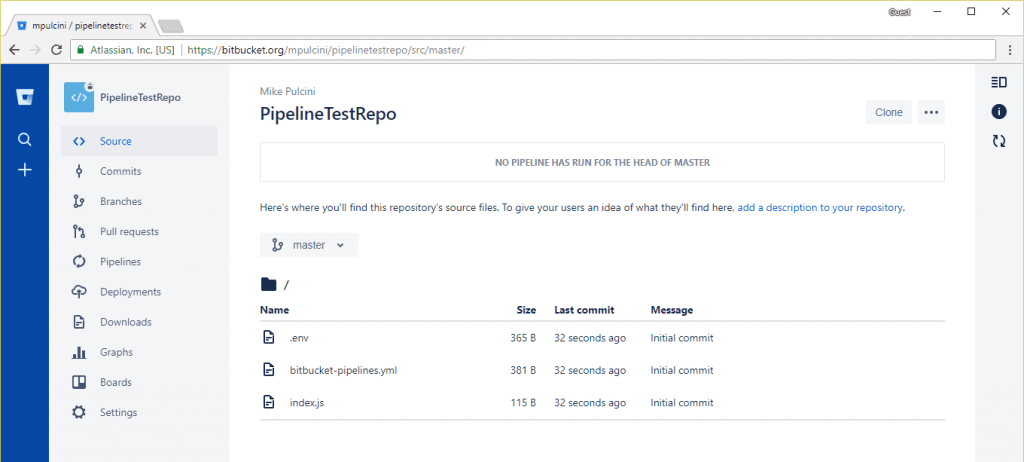
Bitbucket UI
In addition, running git repositories on the Network File System (NFS) can potentially lead to performance issues, with slower load times and delays in data retrieval.
This could be problematic for businesses that prioritize time efficiency and data safety. Despite Bitbucket's advanced features, these challenges could pose significant issues for certain users.
What is GitLab: An overview
GitLab is a web-based, open-source platform for version control and collaborative software development, primarily utilizing Git for source code management. It serves as a comprehensive DevOps tool, offering features such as continuous integration and deployment (CI/CD), issue tracking, and project management, enabling teams to streamline their development workflows.
GitLab can be self-hosted for enhanced security and control, making it a versatile choice for both individual developers and large organizations.
GitLab: An advanced SCM solution
GitLab, with its advanced scaling and availability, provides a comprehensive solution.
- GitLab operates on 'groups,' collections of projects, and associated user access data.
- It offers varying user-level permissions, providing significant control over projects within a group.
- GitLab also supports hooks at the project and system levels, fostering development automation. It connects Git repositories and GitLab instances to other development tools like CI servers, chat rooms, or deployment tools.
- GitLab's ability to provide advanced scaling is another advantageous feature. Scalability is crucial in a development environment as it determines the system's ability to handle increased workloads effectively.
- As a team grows, the volume of code to manage also increases. GitLab's advanced scaling capabilities can handle such growing volumes, ensuring the system's performance isn't compromised and productivity remains consistent.
The strength of GitLab: High Availability
GitLab's High Availability, achieved through redundant components and automatic failover, sets it apart. High Availability (HA) is a crucial feature. GitLab attains HA through redundant components and automatic failover, minimizing downtime and maintaining consistent performance.
The redundancy in GitLab extends from hardware to software elements like databases and application servers, creating a failsafe network of backup components.
If a component fails, another step in without interruption. GitLab's automatic failover ensures this switch occurs seamlessly without manual intervention, significantly reducing service disruption. To further fortify HA, GitLab allows the creation of a Gitaly cluster.
Gitaly is a service handling git and repository-related calls in GitLab. A Gitaly cluster is a group of Gitaly servers housing multiple copies of Git repositories, ensuring no single point of failure, thereby enhancing GitLab's reliability and availability.
GitLab HA reduces latency and scales with ease
According to the GitLab community on Reddit, GitLab HA notably enhances performance for distributed teams by deploying servers in multiple geographical areas. This setup reduces latency significantly, allowing quicker access for remote team members situated far from the main server—an especially crucial advantage for global teams handling complex, large-scale projects.
The community also highlights GitLab HA’s scalability, emphasizing its ability to smoothly handle an expanding number of users and greater workloads without noticeable drops in performance.
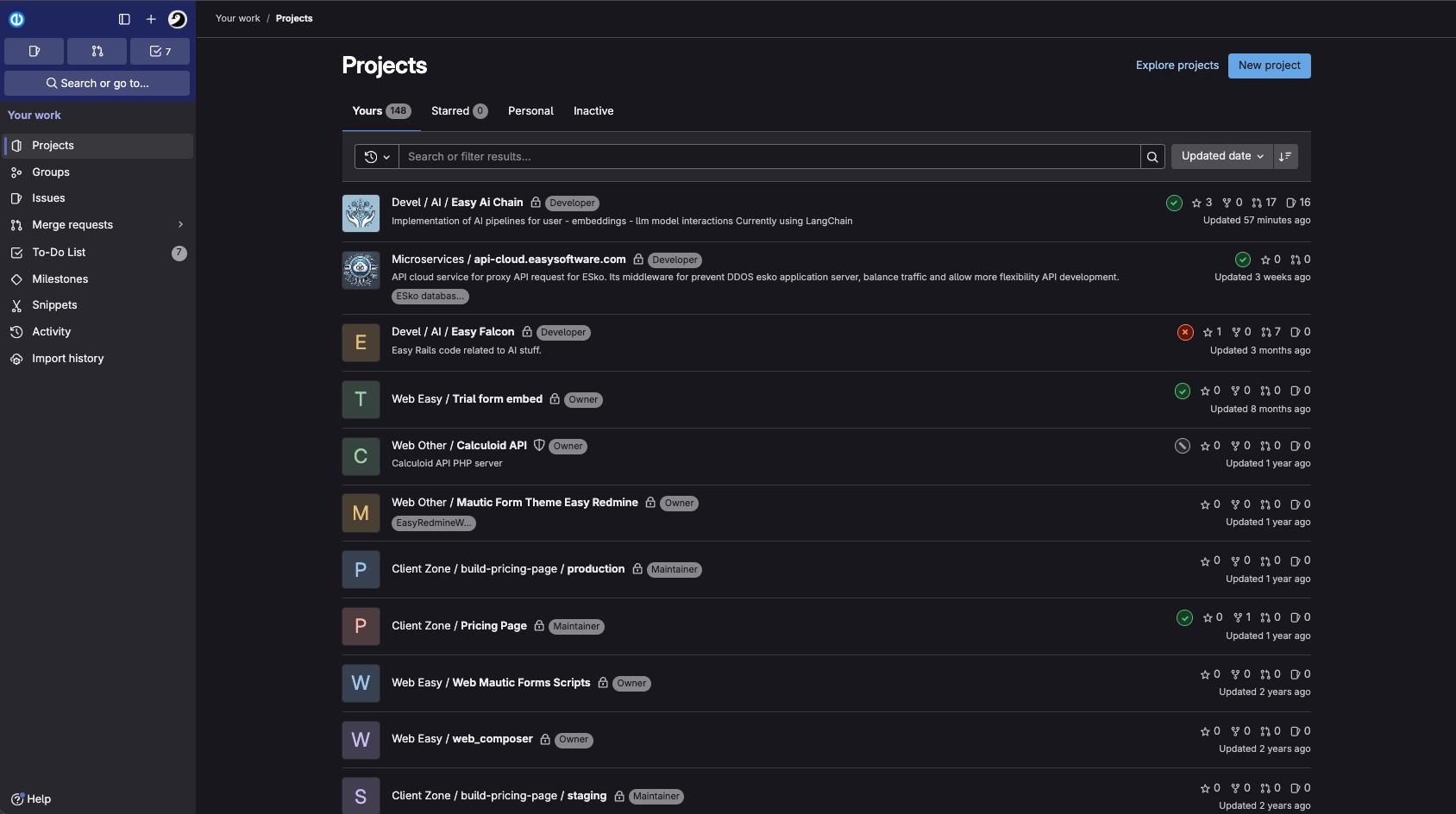
GitLab and Easy Redmine
GitLab vs Bitbucket: Which one to choose
While both Bitbucket and GitLab offer critical repository management features, GitLab appears more robust due to its open-source nature, comprehensive DevSecOps platform, and superior High Availability.
Table comparison: Bitbucket vs GitLab
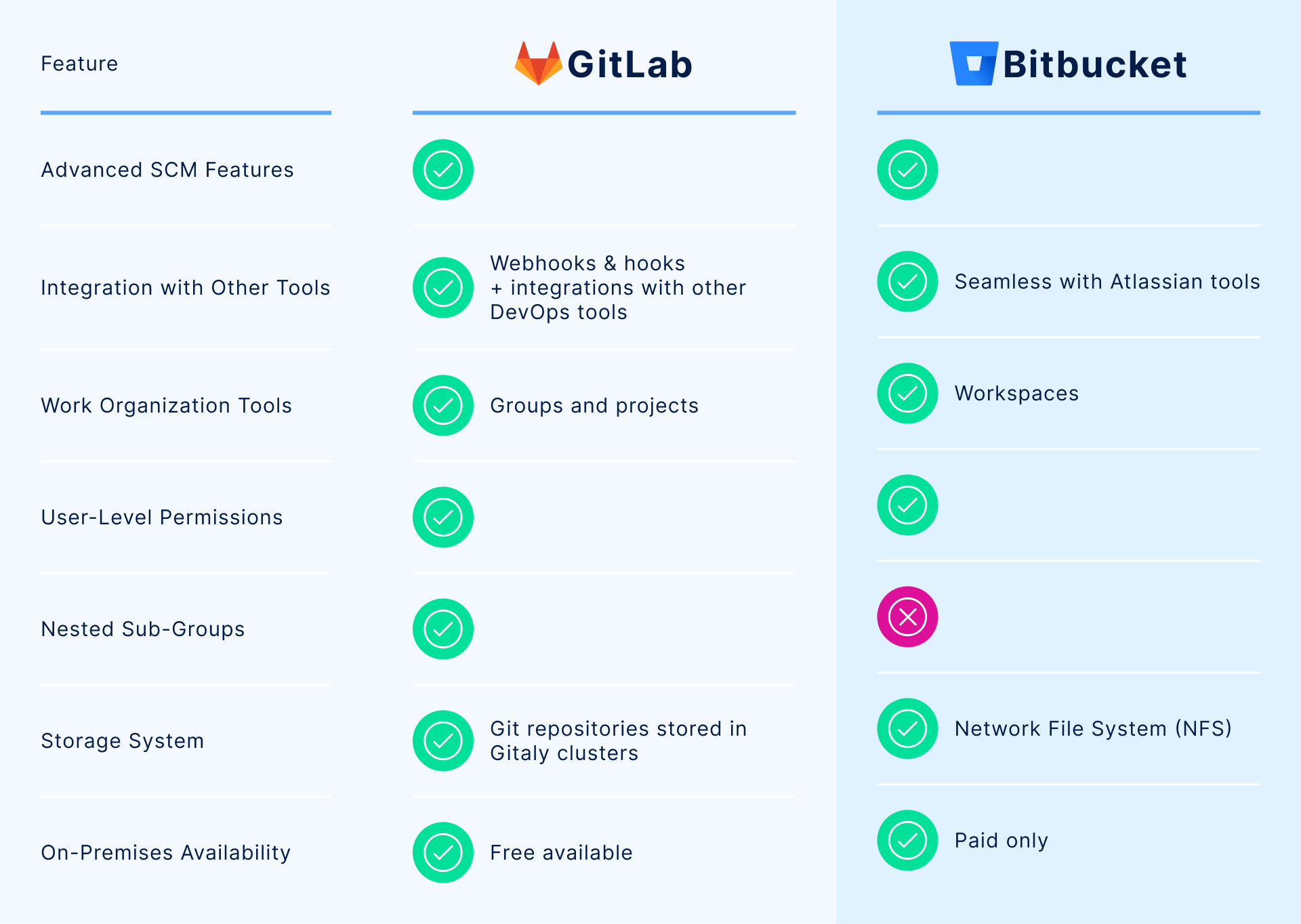
Comparison table: GitLab vs Bitbucket
Key factors to consider when choosing
In a nutshell, GitLab is the best for integrated CI/CD, self-hosting capabilities, and free private repositories. Bitbucket is ideal for teams using Atlassian products like Jira and Confluence due to seamless integration.
- CI/CD and automation: GitLab stands out for its powerful CI/CD capabilities, making it easy to set up automated testing and deployments. You can even host your pipelines on your own servers. Bitbucket does offer CI features, but they are more limited unless you upgrade to a paid plan.
- Integration with other tools: Bitbucket is designed to work seamlessly with Jira and Confluence, making it a top pick for teams using Atlassian products. However, some users find it lacking certain features like markdown support and an Issues menu, which may require buying extra tools from Atlassian.
- Hosting options: Both platforms support self-hosting, but GitLab is often preferred for its free plan pricing and maintenance. If you’re considering GitHub Enterprise or Bitbucket Server for on-premises hosting, keep in mind that it’s not free.
- User experience: When it comes to the interface, preferences vary. Some developers like GitLab’s API and overall layout, while others prefer Bitbucket’s pull request review process. That said, Bitbucket has received criticism for being less intuitive and having outdated documentation.
- Cost comparison: If budget is a concern, GitLab’s free tier is quite generous, offering unlimited private repositories and built-in CI/CD. Bitbucket’s pricing can add up, especially if you need advanced features or extra Atlassian integrations.
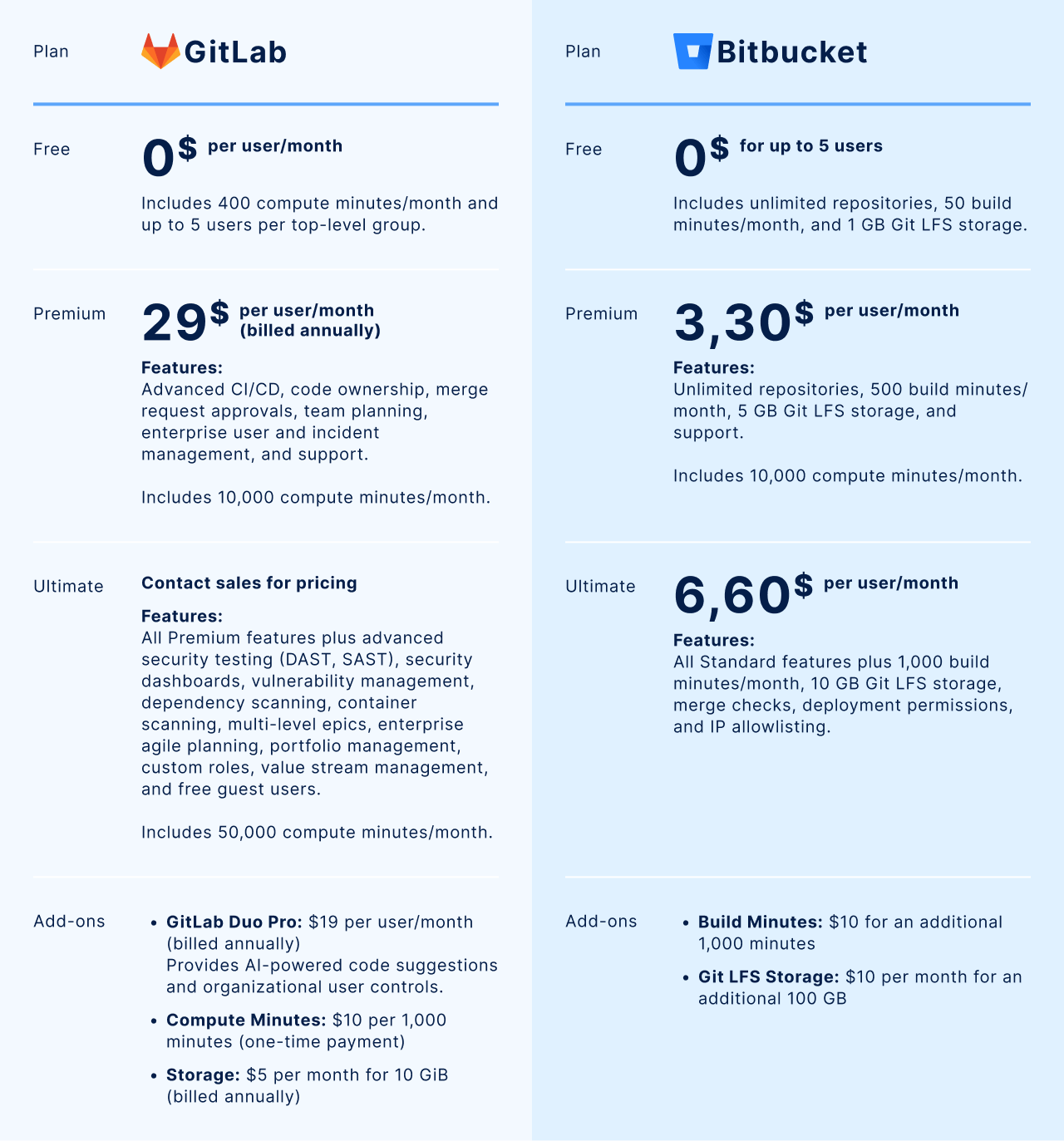
Bitbucket vs. GitLab pricing
GitLab vs Bitbucket: User adoption trends
When evaluating Git repository management tools, it’s essential to consider their adoption across different user groups. The data from the Stack Overflow 2022 Developer Survey clearly shows that GitLab is more widely used for both personal and professional projects.
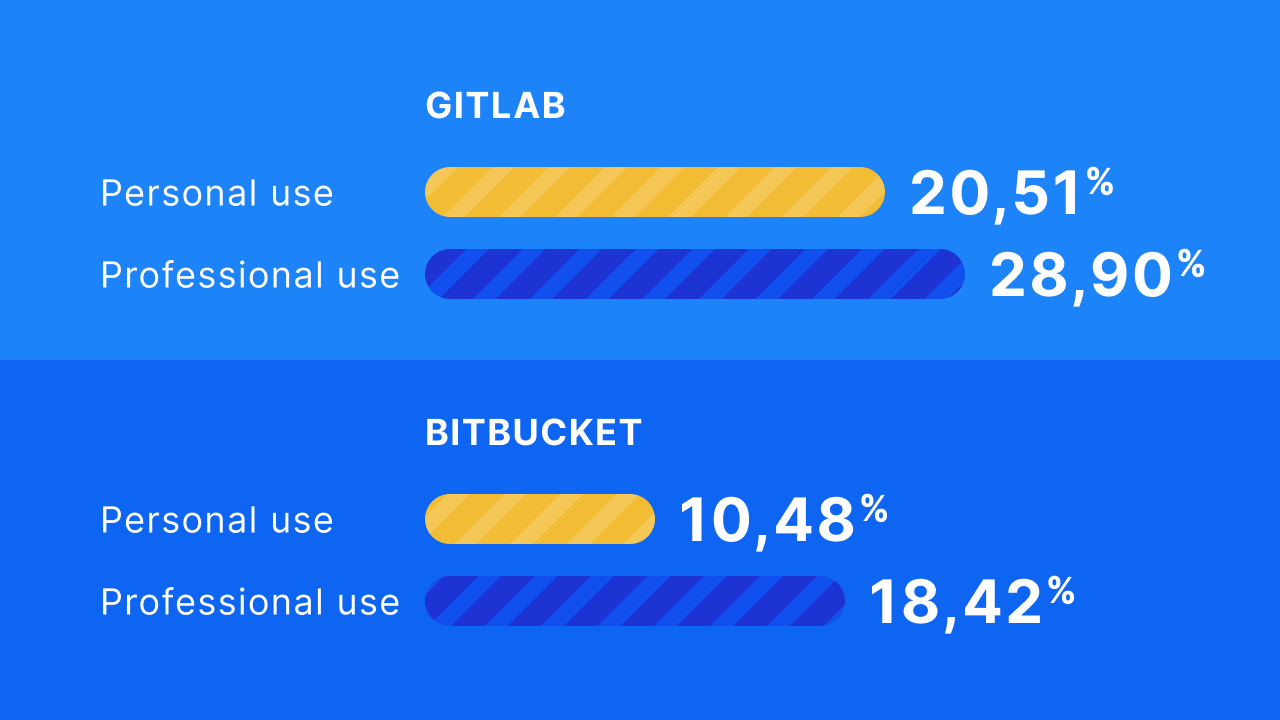
GitLab and Bitbucket usage trends
Bitbucket or GitLab: Final verdict
Choosing between GitLab and Bitbucket largely depends on your specific needs. If seamless integration with Atlassian tools is crucial, Bitbucket might be the way to go.
However, for comprehensive CI/CD capabilities, ease of self-hosting, and cost-effectiveness, GitLab stands out as a strong contender.
GitLab: A potential choice for Easy Redmine users
As we wrap up this comparison, it's crucial to mention a scalable platform like Easy Redmine for those contemplating a substantial shift in their project management tools.
All in all, GitLab stands out as an advanced source code management platform due to its extensive feature set that not only covers version control but also integrates hybrid project management, CI/CD, security functionalities and on-premises hosting.
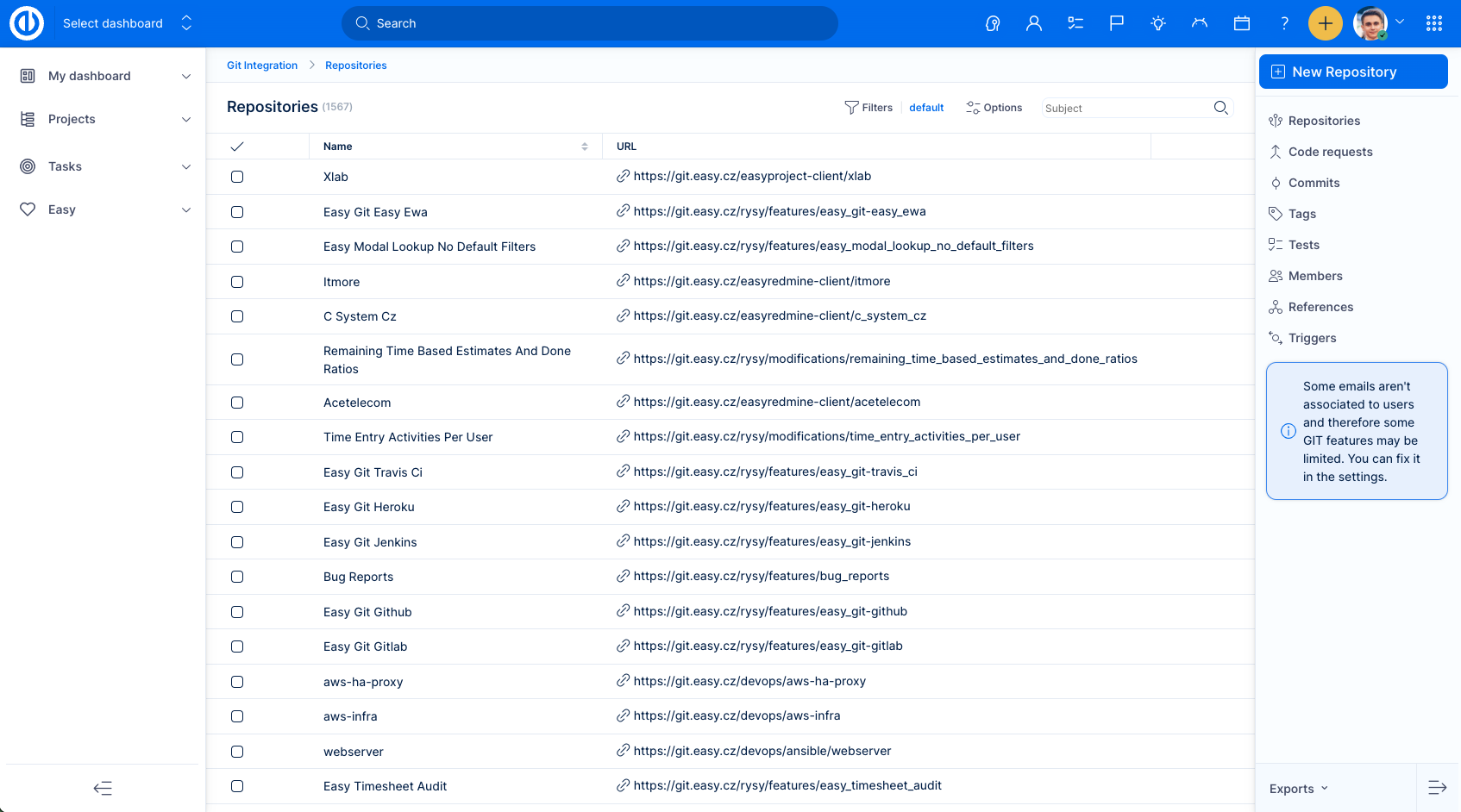
GitLab integration with Easy Redmine
With its potential for seamless integration, GitLab stands out as an excellent choice. This merger of technologies could greatly enhance the efficiency and effectiveness of users desiring a strong Source Code Management (SCM) solution.
The opportunities offered by this integration are poised to revolutionize the way we handle project management, delivering remarkable results. Learn more about GitLab integration with Easy Redmine!
GitLab vs. Github
Still unsure and need more details? Want a direct comparison of GitHub vs GitLab to confirm your choice? Our comprehensive GitHub vs GitLab comparison is now available to help you choose the right platform for your needs.
Frequently asked questions
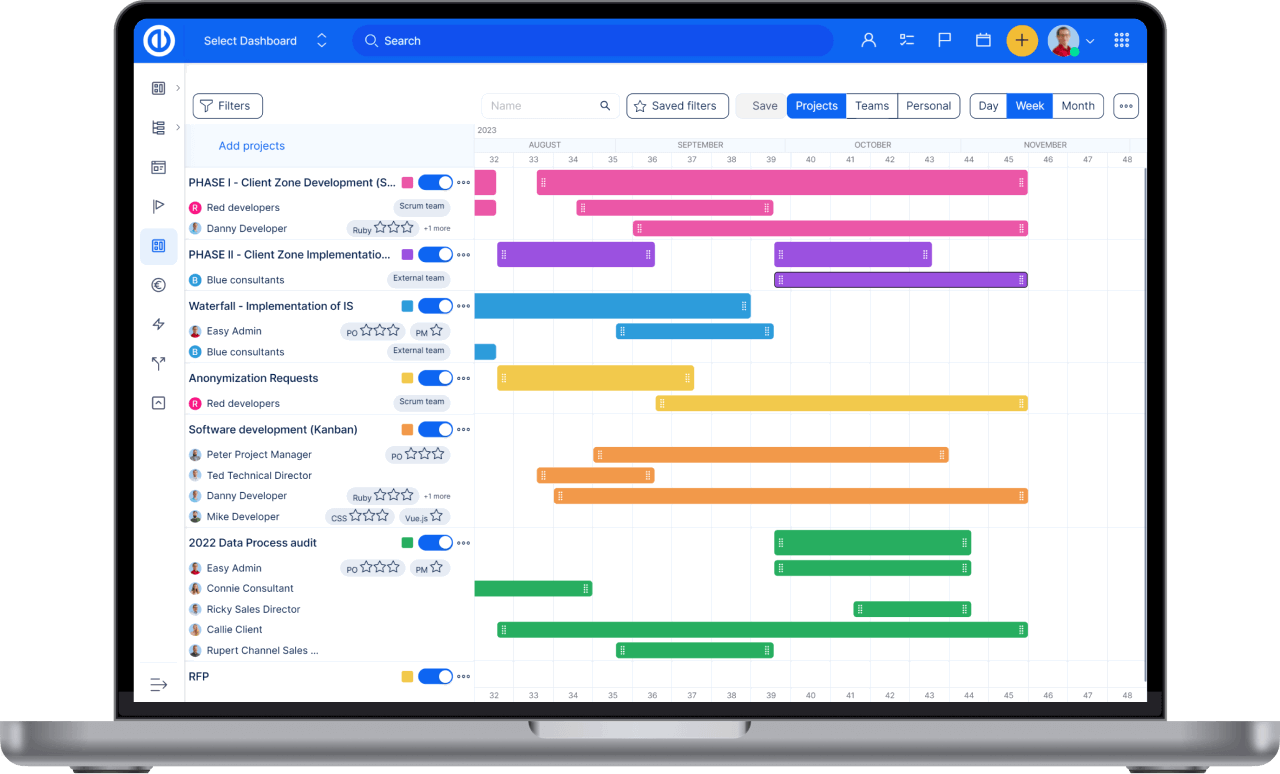
The ultimate Redmine upgrade? Easy.
Get all powerful tools for perfect project planning, management, and control in one software.



